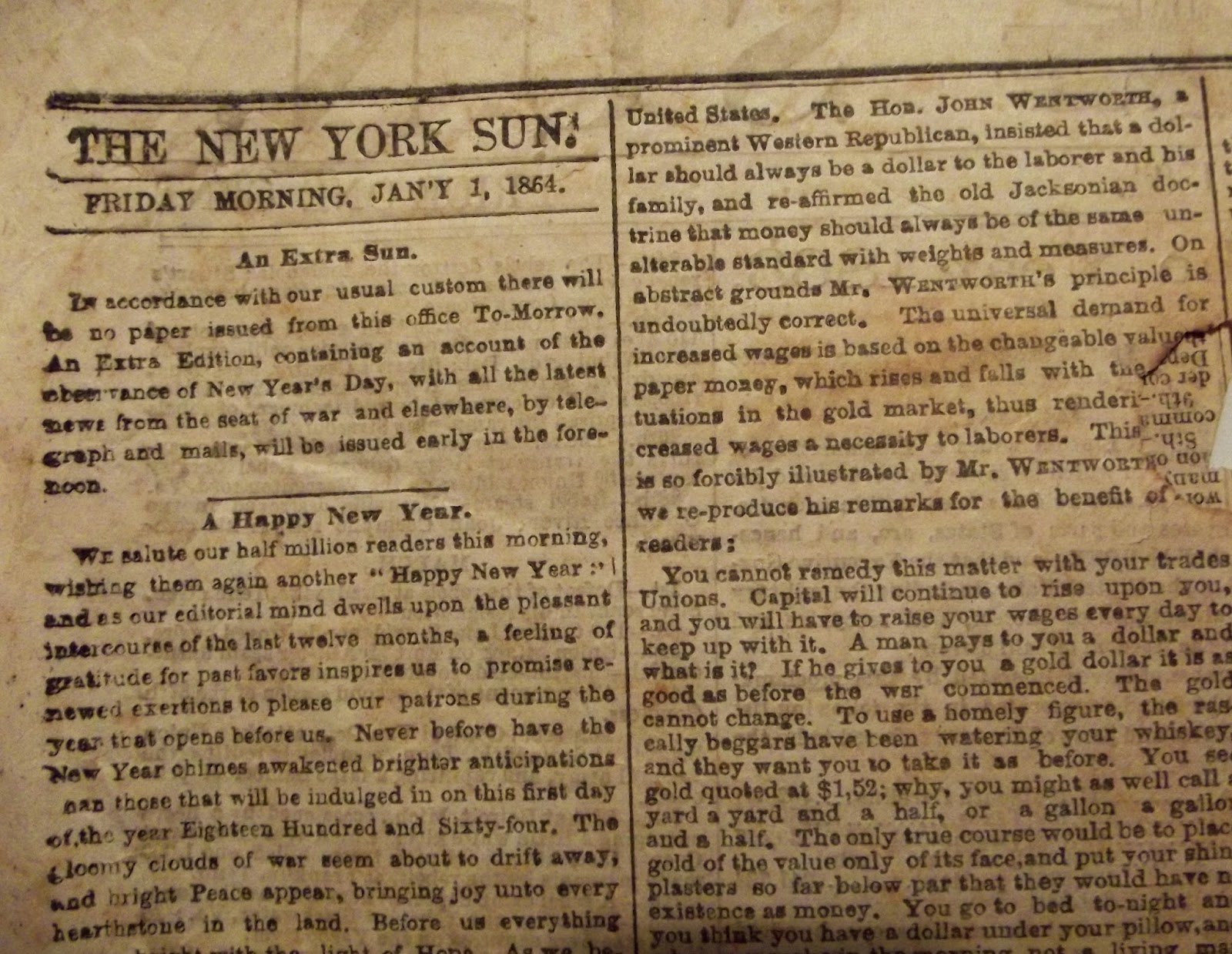Scraps: A Happy New Year
This is one of my favorite scraps in the pile, not
just because it is nearly the oldest but also because it includes not only the date but
the name of the newspaper as well. It was clipped by a person unknown from the The Sun, which was published in New York, and is dated January 1, 1864.
Or more specifically, “Jan’y 1, 1864." Below the date
is a headline proclaiming “A Happy New Year,” followed by a column of copy that
expresses more optimism than you might expect during a time when the country was
suffering through what remains to this day its bloodiest war.
The article claims that, “Never before have the New
Year chimes awakened brighter anticipations” and “The gloomy clouds of war seem
about to drift away, and bright Peace appear…” Whether there was real cause for
this optimism or it was simply wishful thinking is hard to say from our
comfortable perch one hundred and fifty years in the future, but we do know for
sure that on the day these sentences were written the surrender at Appomattox
was still well over a year away.
On the flip side of the scrap, under the heading The
Year 1863 is list of “important and other events” for that year. Topping that
list are several paragraphs from January 1st, the day when
President Lincoln issued what we now refer to as the Emancipation Proclamation.
In the article it is referred to as a Proclamation of – and it is from here
that a thumb-sized piece of the ancient newspaper is missing, taking the historic word
with it.
Below this are two charts: one lists the number of
slaves in certain “states and parts of states” that have been liberated by Lincoln’s
proclamation. The other names the states where the “institution of slavery” is
not disturbed. Included here are Delaware, Kentucky, Maryland and others,
leaving a total of 830,000 slaves “still in bondage.” (Just in case you thought
the Emancipation Proclamation freed all the slaves.)
Other events recalled from 1863 include a riot in
Detroit that began with “a negro outraging a little white girl,” and a lecture
by reformer Henry Ward Beecher that was “disturbed by a mob.” Beecher,
the brother of Harriet Beecher Stowe and who supported abolition and women’s
suffrage, would later stand trial for adultery. Also in 1863, General Ambrose
Burnside took over the command of the Department of the West, although today he
is better remembered for his facial hair, and for lending his name to what we
now call “sideburns.”
Incidentally, a copy of The Sun cost a penny
in 1864, which is the equivalent of only fifteen cents today. This seems like
quite a bargain. After all, can you find a newspaper for fifteen cents? Can you
find a newspaper at all?




0 Comments:
Post a Comment
<< Home